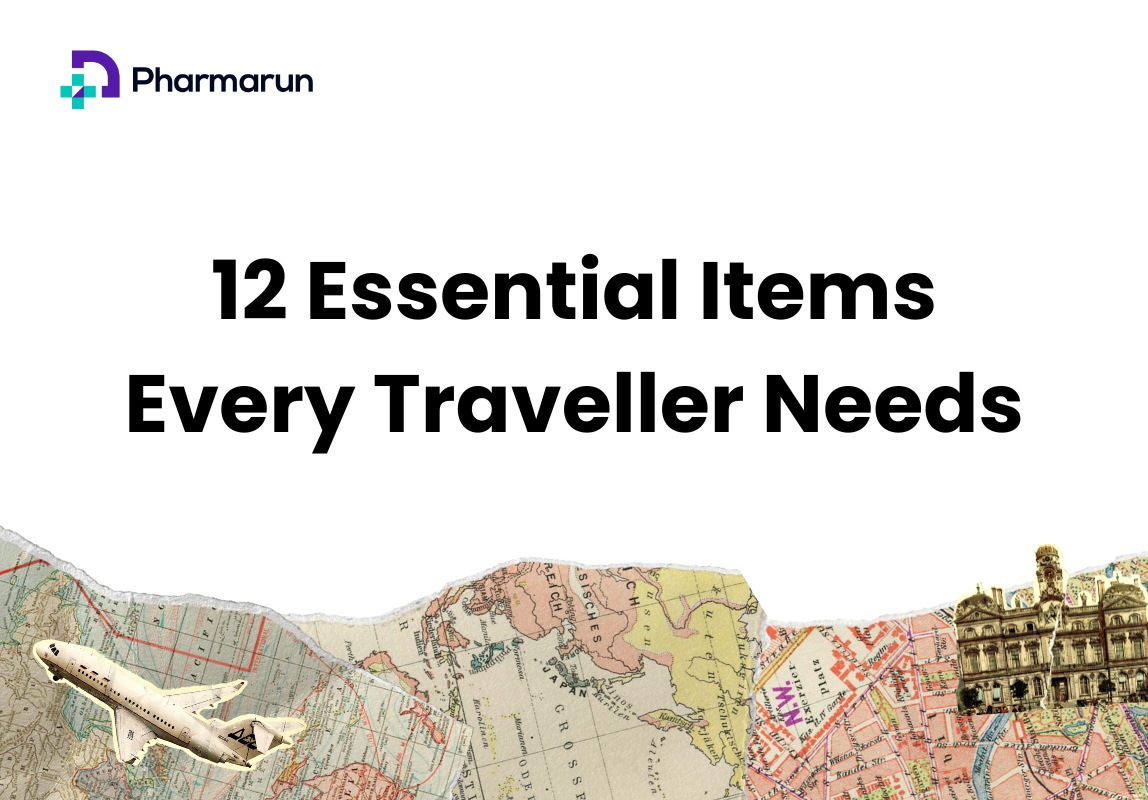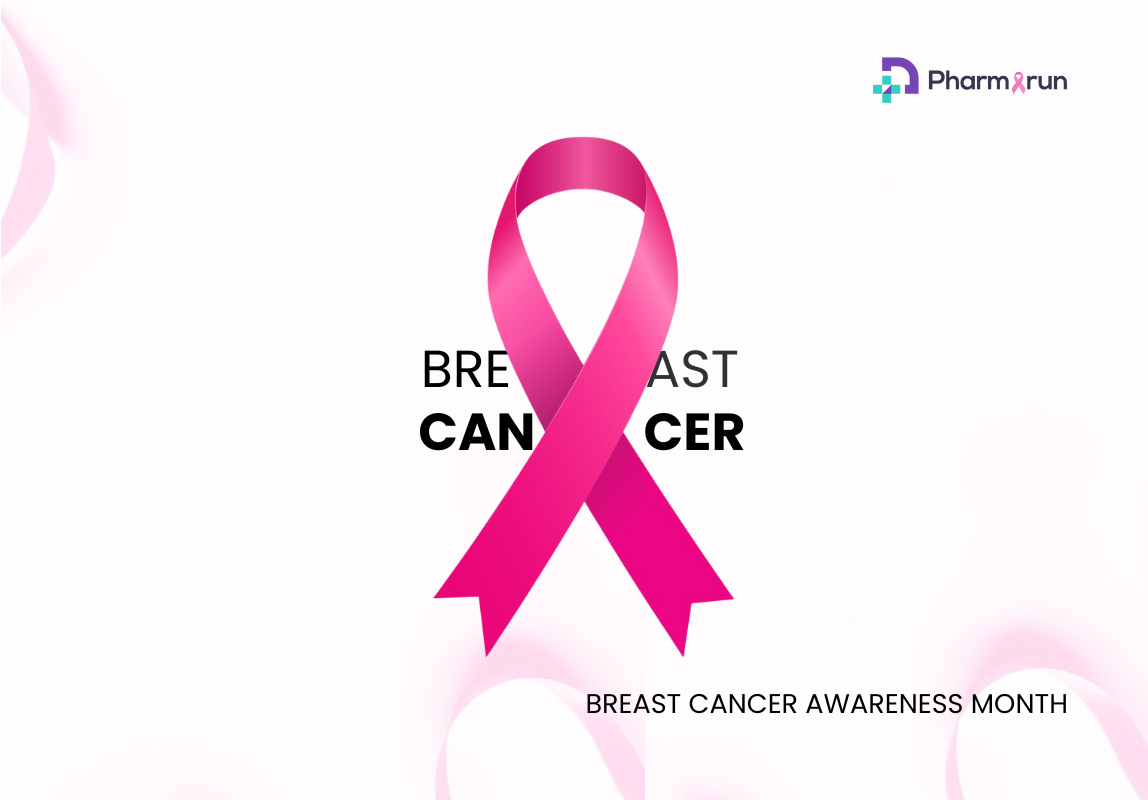How to Manage Different Mental Health Disorders and Conditions. | Pharmarun

Our mental health is as important as our physical health. Just like we take care of our bodies, we also need to take care of our minds. When we talk about mental health, we're talking about how we feel and think, and it can affect how we live our lives. Looking after our mental health is a major part of staying healthy.
Every year, on World Mental Health Day, people all over the world come together to talk about mental health. It's a special day to remind us how important it is to take care of our minds and to support each other. On this day, we share information and stories to help everyone understand mental health better and to let those who are struggling know that they're not alone.
What Are Mental Health Disorders and Conditions?
Mental health disorders and conditions are different ways our minds can sometimes work. Just like our bodies can get sick, our minds can too. These conditions can affect how we think, feel, and behave. There are various types of mental health conditions, and we'll explore them in detail in the sections ahead. Staying aware of these conditions can help us know how to get the right help and support when we or someone we care about needs it.
Types of Mental Health Disorders
Anxiety-related Disorders
- Anxiety
Anxiety is a common feeling that everyone experiences from time to time. It's that jittery feeling you get when you're facing something new or stressful, like a big test or a job interview. But for some people, anxiety can become overwhelming and constant, making everyday life harder.
- Anxiety Syndrome
Anxiety syndrome is when anxiety becomes a regular part of your life, even when there's no obvious reason to be worried. It can cause physical symptoms like a racing heart, sweating, or feeling on edge. Anxiety syndrome can make it tough to concentrate and enjoy things you used to like.
- Anxiety Attacks
Anxiety attacks, also called panic attacks, are intense moments of anxiety. During an anxiety attack, you might feel like you can't breathe, your heart is pounding, and you're in a state of extreme fear or dread.
- Anxiety Treatments
There are different ways to help manage anxiety, and what works best can vary from person to person. Treatments may include therapy, medication, or even simple relaxation techniques like deep breathing or meditation. The important thing is to reach out for help when anxiety starts interfering with your daily life. You don't have to go through it alone.
Mood Disorders
1. Depression
Depression is a deep sadness that hangs around for a long time. People with depression might lose interest in things they used to enjoy, have trouble sleeping, or feel tired all the time.
Clinical Depression
Clinical depression is a serious form of depression. It can affect every part of a person’s life, from their energy levels to their appetite. If you have clinical depression, it's important to seek help.
Signs of Depression
Sometimes, it's not easy to recognize depression in yourself or others. Signs include persistent sadness, changes in appetite or weight, trouble sleeping or sleeping too much, and losing interest in activities. If you notice these signs in yourself or someone you care about, it's important to talk to a healthcare professional.
Signs of Depression in Women
Depression can affect anyone, but it can sometimes look different in women. Women may experience mood swings, changes in their menstrual cycle, or heightened feelings of guilt.
2. Bipolar Disorder
Bipolar disorder is a mood disorder that involves extreme highs (mania) and lows (depression). During manic episodes, a person may feel overly excited, full of energy, and impulsive. But then, they may swing into a deep depression.
Bipolar disorder can be managed with the right treatments, which may include medication, therapy, and lifestyle changes. These treatments aim to stabilize mood swings and help people with bipolar disorder live fulfilling lives. Click here to read more about Bipolar Disorder.
3. Mood Disorder
Mood disorder is a general term that includes conditions like depression and bipolar disorder. If you're dealing with mood swings or persistent changes in your emotional state, it's essential to speak with a healthcare professional who can help identify the specific disorder and recommend the right treatment.
Schizophrenia and Schizophrenia-Related Conditions
1. Schizophrenia
Schizophrenia is a complex mental health condition that can affect how you think, feel, and behave. People with schizophrenia may experience hallucinations (seeing or hearing things that aren't there), delusions (strongly held false beliefs), and difficulty organizing their thoughts. Schizophrenia is a medical condition and not a split personality.
Schizophrenia Treatments
Treatment for schizophrenia typically involves a combination of medications, therapy, and support from mental health professionals and loved ones. Medications can help manage symptoms, while therapy can assist individuals in developing coping strategies and improving their quality of life.
Post-Traumatic Stress and Related Disorders
1. Post-Traumatic Stress Disorder (PTSD)
PTSD, or Post-Traumatic Stress Disorder, is a condition that some people develop after experiencing a deeply distressing or traumatic event. It can cause flashbacks, nightmares, and intense anxiety. People with PTSD may feel on edge and avoid situations that remind them of the trauma.
PTSD Treatments
There are effective treatments available for PTSD. Therapy, such as cognitive-behavioral therapy (CBT), can help individuals process their traumatic experiences and learn coping strategies. Medications may also be prescribed to manage symptoms like anxiety and depression.
2. Postpartum Psychosis
Postpartum psychosis is a rare but severe mental health condition that can occur in some women after childbirth. It involves symptoms like confusion, hallucinations, and extreme mood swings. It's important to seek immediate medical attention if someone you know is experiencing these symptoms, as it can be a medical emergency.

Obsessive-Compulsive and Related Disorders
1. Obsessive-Compulsive Disorder (OCD)
Obsessive-Compulsive Disorder, or OCD, is a mental health condition where a person experiences unwanted, intrusive thoughts (obsessions) and feels compelled to do repetitive actions or rituals (compulsions) to reduce their anxiety. These behaviors can interfere with daily life.
OCD Treatments
Treatment for OCD typically involves a combination of therapy, medication, and support. Cognitive-behavioral therapy (CBT) is often used to help individuals manage their obsessive thoughts and reduce compulsive behaviors. Medications, such as selective serotonin reuptake inhibitors (SSRIs), can also be effective in reducing OCD symptoms.
2. Social Phobia Disorder
Social Phobia Disorder, also known as Social Anxiety Disorder, is a condition where individuals feel extremely anxious in social situations. They may fear being judged or embarrassed, leading to avoidance of social interactions. Therapy, such as cognitive-behavioral therapy (CBT) and exposure therapy, can help individuals with social phobia learn to manage their anxiety and improve their social confidence. If you or someone you know is struggling with OCD or social phobia disorder, it is important to seek help from a mental health professional so as to find effective strategies and support.
Personality Disorders
1. Narcissistic Personality Disorder
Narcissistic Personality Disorder is a mental health condition where a person has an exaggerated sense of their own importance and a constant need for admiration. They may lack empathy for others and have difficulty maintaining healthy relationships. People with this disorder often struggle with their self-esteem and may not be aware of how their behavior affects others.
2. Antisocial Personality Disorder
Antisocial Personality Disorder is a mental health condition characterized by a persistent pattern of disregarding the rights of others. Individuals with this disorder may engage in behavior like deceit, manipulation, and a lack of remorse for their actions. People with this disorder can change with the right support and treatment.
3. Paranoid Personality Disorder
Paranoid Personality Disorder is marked by extreme distrust and suspicion of others, even when there's no evidence to support these beliefs. People with this disorder may find it challenging to build and maintain relationships due to their deep-seated fears of betrayal or harm. Treatment, including therapy and support, can help individuals with Paranoid Personality Disorder develop more trusting and healthier connections with others. If you or someone you know is dealing with any of these personality disorders, seek professional help and support to understand and manage the condition effectively.
Other Psychiatric Disorders
1. Psychosis
Psychosis is a term used to describe a state where a person loses touch with reality. They may experience hallucinations (seeing or hearing things that aren't there) or have delusions (strongly held false beliefs). Psychosis can occur in conditions like schizophrenia, bipolar disorder, or severe depression. It's a sign that someone might need urgent medical attention and support.
2. Antisocial Personality Disorder
Antisocial Personality Disorder is a condition where a person consistently violates the rights of others and lacks empathy. They may engage in behavior that disregards societal norms and the well-being of those around them. Treatment for this disorder can help individuals develop healthier patterns of behavior.
The Signs of Mental Illness
Signs of mental illness can include persistent sadness, changes in behavior, extreme mood swings, or withdrawal from activities once enjoyed. When we spot these signs, it's the first step in getting the help and support needed to feel better.
Breaking the Stigma Surrounding Mental Health
There's often a stigma or shame associated with mental health issues, which can make it hard for people to talk about what they're going through. Breaking this stigma means creating a safe and supportive environment where people feel comfortable discussing their feelings and seeking help. Mental health challenges are just like physical health challenges—nothing to be ashamed of.
Coping Strategies and Treatments
- Psychotherapy and Psychotherapists
Psychotherapy, often called talk therapy, is a way to address mental health challenges by talking to a trained professional, like a psychotherapist or counselor. They listen, offer guidance, and help develop strategies to manage emotions and improve mental health.
- Medications and Psychiatry
In some cases, medications prescribed by a psychiatrist can be a helpful part of mental health treatment. Psychiatrists are doctors who specialize in mental health. They can assess your condition and determine if medication might be beneficial. These medications can help balance brain chemistry and reduce symptoms of conditions like depression, anxiety, or bipolar disorder.
- Behavioral Psychology
Behavioral psychology focuses on understanding and changing behavior patterns. Therapists in this field help individuals identify and modify behaviors that may be causing distress. For example, if someone is struggling with phobias or addiction, behavioral therapy can be highly effective in helping them make positive changes.
- Self-Care and Mental Stress Management
Self-care is all about taking time for yourself to recharge and reduce stress. It can involve activities like exercise, meditation, spending time with loved ones, or pursuing hobbies you enjoy.
- Support Systems and Resources
Support from friends and family can really help when you're facing mental health challenges. Talking to someone you trust can provide emotional relief and help you feel less alone. Additionally, there are numerous mental health resources available, including hotlines, support groups, and online information, to provide guidance and assistance.
Coping Strategies and treatments for mental health challenges vary from person to person. What's most important is finding the right combination of strategies and support that work best for you. Don't hesitate to reach out to professionals and lean on your support system when needed—you're not alone on this journey..
Conclusion
Improving your mental health is a journey, not a destination. It's about taking small steps, seeking help when needed, and being patient with yourself. It is okay to seek support when you need it and self care is not selfish.
If you ever require any medications or any of the medications mentioned in this article, Use Pharmarun. We will not only deliver quality medications to your doorstep anywhere in Nigeria but also allow you to set up regular deliveries, picking when you want them.
Pharmarun provides free access to pharmacists, doctor consultations, lab test booking, and helps you take care of your loved ones, no matter where you are in the world. You can also get delivery when you order via the Pharmarun Wallet. Click here to get started.
With the Pharmarun web app, you can also check your Body mass index (BMI), Ovulation etc for free. Click here to get started.
Pharmarun is the simple solution you need to live a healthy life. Click here to get started with Pharmarun.
Lastest bants
Stories, facts and bants on this journey to ensuring access to medication for Africa
Download Pharmarun today!
Get started with us today by using our delivery service. Also, be one of the first to experience our unique healthcare platform.





